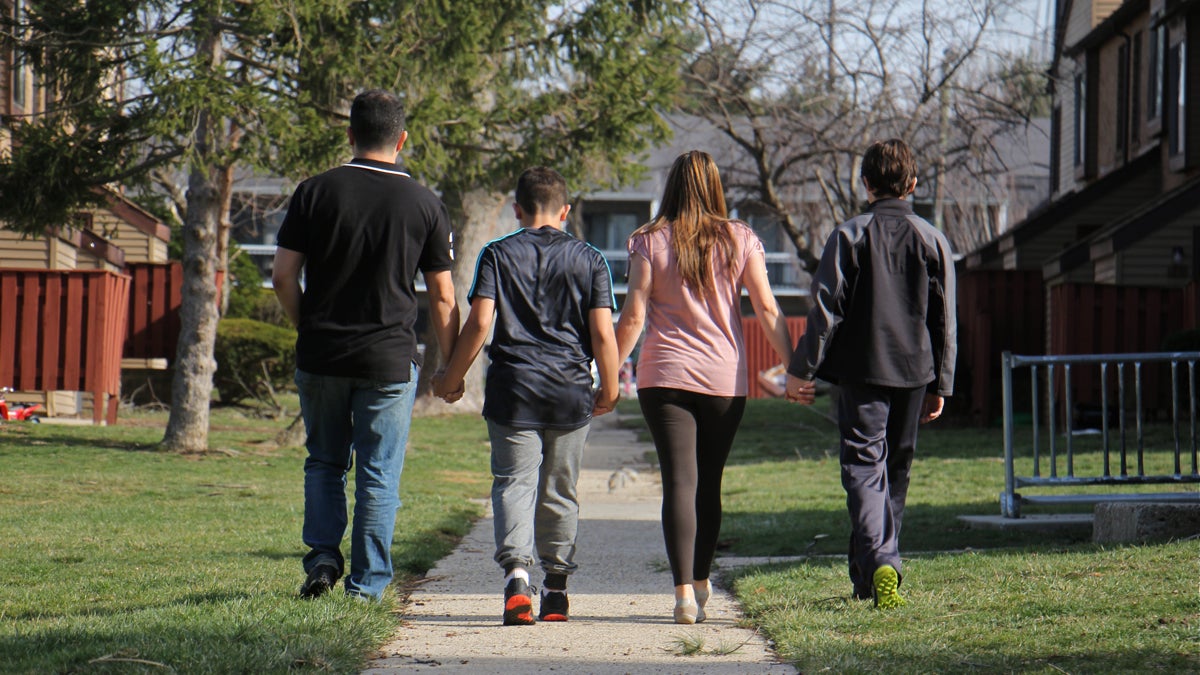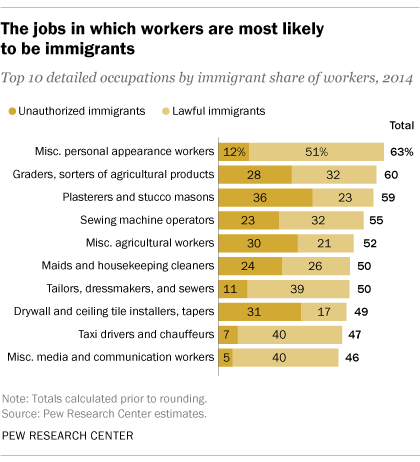‘Diego’ and ‘Natalia’: Choosing to be unauthorized over unemployed
Listen 5:27
A Costa Rican family walks near their home in South Jersey. (Emma Lee/WHYY)
“Life, unauthorized” is a series from WHYY that looks at the personal immigration stories of individuals who are living in the Philadelphia region without legal status.
—
‘Diego’ and ‘Natalia,’ both 38, from Costa Rica
In 2000, the couple (whose real names are being withheld to protect their identities) entered the United States, where they had two sons. When the younger son fell ill, the boys and their mother returned to Costa Rica. But their father stayed in the U.S. After several years apart, the distance took a toll on the family, and they eventually reunited in New Jersey. Both parents overstayed six-month tourist visas to live in the U.S. Their sons are American-born citizens.
Life here is “not easy,” says Diego. In Costa Rica, he worked for a bank and an electric company (“kind of nice jobs”). But he thought the salaries would be higher in the U.S. Once here, though, he had to resort to manual labor. He tried his hand at construction, but the heat was overwhelming. Eventually he got a job at a manufacturing company in South Jersey. Most of the people at the company were friendly, he says, but one man questioned him frequently.
“He asked me, ‘Why are you working here? Why don’t you go back to Mexico?’ Because to everybody, we’re all Mexicans,” Diego said.
One day, his manager told him and the other unauthorized workers that ICE was coming, and that they could either leave or be arrested. They suspected that the overly inquisitive man told police that unauthorized immigrants were working there. So Diego left.
He started a painting company using an ITIN number, a taxpayer ID given to immigrants who do not have Social Security numbers, regardless of status, so that they can pay taxes. But he has to drive for work, which is stressful without a driver’s license or legal identification.
“You drive carefully,” he said, “but there are a lot of people who don’t.”
Diego says he now makes between $150,000 and $200,000 per year from his painting business. But, he says, had he known about the low-paying jobs, lack of freedom, and “humiliation” that comes with being an unauthorized immigrant in the U.S., “I think I would have stayed in Costa Rica.”
In his own words: When people say immigrants steal jobs from Americans
“It makes me laugh, honestly. Because the fact that an American, who speaks English perfectly, who can study, who can have a good job, says that an immigrant who comes from another country, who doesn’t know this place, who doesn’t speak the language, who can’t study, and who can’t drive, is taking your job … it’s just really sad. I don’t know. To me, it’s a joke.”
In her own words: Lack of economic prospects in Costa Rica
“When you say here that you’re from Costa Rica, [people say] ‘Wow! What are you doing here?’ I know that people consider Costa Rica a paradise, like a second Switzerland, with the mountains — it’s beautiful to visit. But it’s very expensive to live there.
“We made the decision to come [to the U.S.] not with the goal of being undocumented and breaking laws, but simply with the idea of bettering ourselves economically, returning to our country, and opening a business or going to school. Our kids were born here, and that changes everything.
“The fact is that we can’t return to my country right now and compete with all of the professional workers who are unemployed. There are thousands of people with college degrees, but there is no work. So how are we going to show up without an education and compete with all of those professionals who don’t have jobs? The only option is to be able to save money and get into business there or do something that would let us give our kids what they need. And, of course, keep living and survive, because there’s no other way.”
WHYY is your source for fact-based, in-depth journalism and information. As a nonprofit organization, we rely on financial support from readers like you. Please give today.





